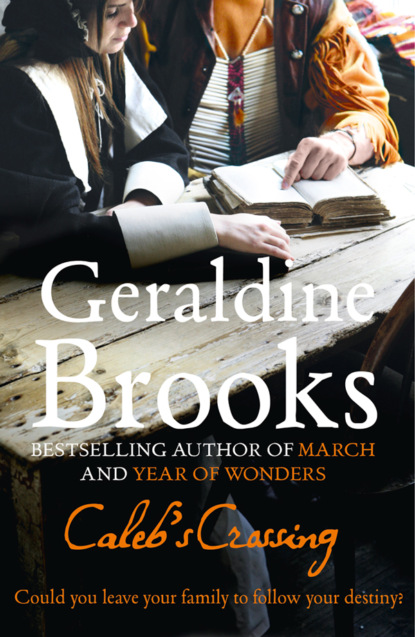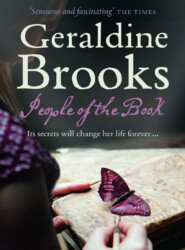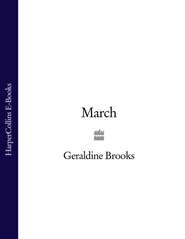По всем вопросам обращайтесь на: info@litportal.ru
(©) 2003-2024.
✖
Caleb’s Crossing
Настройки чтения
Размер шрифта
Высота строк
Поля
If there was power here, it was not for me. This was forbidden fruit indeed. I did not think I could rise up off my knees, but without willing it I was on my feet and running fast as a wood sprite, leaping bushes and evading snags with an agility I had not known I possessed. I ran and leapt until my gut seized and I fell on my knees grasping at my belly. I hoped to cast up the potion and be rid of it. But instead my heaves were dry. I was wracked by cramp. I felt my belly as a spasm girded it. Something was moving there, a hard orb pushing against my soft insides. I reached down. Wet, slimy. Horned head, cloven hoof. The devil’s spawn, heaving up out of my rending flesh. It thrust its way out of me, a bloodied claw gripping my shredded muscle, tugging up through glossy, throbbing entrails. Leathery pinions, dripping ordure. They flexed and extended, brushing my face. I flailed at the beast with both arms. The unholy creature beat its wings, emitting the stench of corruption and rot— the scent of death, not birth. It rose into the riven sky from which bright white arrows fell down upon me, setting me all aflame. I watched my burning flesh blister and melt, falling away from charred bone, until my eyes, withered in the heat, dropped from their sockets like dried pease. Then I saw no more.
I came back to myself lying upon the grass beside the pond. Only minutes had passed, for the sun was just fallen behind the hillock to the west of the pond. The afterglow, pink and lilac, bathed everything in a benign light. I looked at my arms, whole and healthy, and felt my belly, which was tender but most certainly not riven. There was a stench, to be sure. My cast, steaming slightly on the grass, accounted for part of it. I reached for a handful of sassafras leaves to wipe my mouth. As I rose I felt a wetness, and realized with humiliation that I had soiled my drawers. I drew them off in disgust, wrapped them around a rock and threw them far into the trees. My hands shook. I knelt down, took a deep, ragged, sobbing breath and prayed to God for forgiveness. But I did not expect his mercy.
Once, when grandfather did not think I overheard, he related to father a most terrible case that had come before the mainland magistrates. A woman had thrown her own babe down a well. When she was brought to answer for the murder, she said that one great good had come of her evil act. At last, she said, she was free of the uncertainty that had plagued her every waking thought: was she numbered among the damned or the saved? Her whole life had been bent about that question. Finally, she knew.
I thought of her, as I stumbled back to the wetus to wait for father. Now I too, seeker after strange gods, had an answer. Remarkably, rather than oppressing me, this thought made me feel oddly light, as I suppose does the reaching of any kind of certainty, no matter how bleak. I did not know then that God would not wait unto the afterlife, but move so swiftly in this world to punish my sin.
Chapter X
For over an hour, I waited while father attended upon Nah noso. Spasms wracked my gut and my head throbbed. Pretending I was working for father, I steeped some willow bark and drank the liquid, hoping to ease my head. But it was shame that sickened me and no decoction could cure that. Finally, father sent word to me to prepare some onions for a chest poultice, and when he emerged from the wetu I asked if he thought the willow tea might lessen the fever.
“Apparently they have done this already, along with some other witch medicine prescribed by that man,” he inclined his head to where Tequamuck lay, his eyes closed now, a skin cloak thrown over him, his breathing the regular breath of one deep asleep. I realized, with alarm, that I had not returned the gourd to his side, but left it in the thicket. It could not be helped; I could not fetch it now. Father was speaking to me, so I struggled to attend to him. “I propose to bleed him. You may hold the basin if you feel you can.”
I followed father into the wetu where the sick sonquem lay, his son at his side, surrounded by the most notable men of the village. “What do you have for a lancet?” Father asked. One of the men turned over his hand and showed an arrowhead. Father took it up. The man’s arm, where father thought to open the vein, was greasy with streaks of raccoon grease and carbon black, so I washed it, to better reveal the vein, and rubbed the place with crushed mint. Father pressed the stone point into the flesh. I held the basin in my trembling hands, and tried to give myself up to the prayers that father was offering. When father believed we had let sufficient blood, I pushed healing comfrey leaves upon the wound and bound them up with a leather thong that someone passed to me.
While the onions roasted, I smashed the mustard seed into a paste to add heat to the poultice. I could hear the rattle in Nah noso’s chest as father strapped it on. Time crawled, marked by the rise and fall of that ragged breathing. By and by, I thought that the man’s color began to change. It was dark in the wetu, so I thought perhaps my eyes tricked me. But in a while there could be no mistaking it, his labored breathing eased. An hour passed, and then, miracle! He opened his eyes and looked about, asking where he was and, in some agitation, who we were. His son Nanaakomin gave a great cry of joy and embraced his father. It startled me when he cried out, so like was his voice to Caleb’s.
The Takemmy sonquem spoke up then, and told him the whole of it, from the time he had fallen ill: of their own pawaaw’s failure to turn back the sickness, and of sending for Tequamuck and that man’s day-long, fruitless efforts. Then he pointed to my father and described how heat magic (the poultice) and blood magic, partnered with spells addressed to the English God, had returned him from the brink of death.
“Manitoo!” breathed Nah noso, and fell back on his mat. Father turned to me then and spoke in English. “I would like to stay and see to his care, but I do not want you to pass the night here.”
“Why not, father?”
“Because there is no wetu in which you might lay your head without risk of witnessing some indecency. I will ask Momonequem to return us to the Merrys and then I will come back here with him.”
“You need not escort me, father. I am quite prepared to go with Momonequem.”
“By no means. Even if the youth is honorable, which I have no reason to doubt, I would not put your reputation at risk. What would the Merrys make of such a thing? You, alone in a boat with . . . no, it is unthinkable.”
I thought of all the hours I had spent alone with Caleb. Innocent hours that would make a harlot of me in my father’s reckoning, and in the eyes of our society. It was well that no one knew of them.
We rowed back to the Merry farm by rushlight. Jacob Merry insisted on ceding his place to me, so I lay down with Sofia as my bedfellow. Her featherbed was twice as wide and lofty as my straw-and-rag-filled shakedown. Though I fell straight to sleep I was awakened many times by fell dreams. I had to resort to the necessary several times throughout the night. When Sofia asked what ailed me, I blamed my bowels’ distress on the corn mash I had taken from the common pot in the wetu.
In the morning I rose, weary, and gave a hand to Sofia with her chores until the men came in for bever. I felt Jacob Merry’s eyes upon me as I helped Sofia serve out cider and slices of crusty bread spread thick with new-churned butter. I tried to hide the tremor in my hands.
“Noah, as Mistress Mayfield is detained here for some hours, perhaps she would like to see the farm. Why do you not show it her?”
“I will, father,” said Josiah brightly.
“Not you, Josiah, I can’t spare you. I want your help at the mill.”
“But we already ground . . .”
Jacob Merry pushed his chair back noisily and glared at his eldest son.
“I am in want of your help.”
“Very well, father.” As Josiah rose obediently from his seat, I saw him wink at his brother and punch him lightly on the arm. Noah flushed.
Whatever consciousness he might have felt, he quickly shook it off as we walked the fields. I tried to attend to him, but my mind was still occupied with the prior day’s madness and my thoughts were as scattered as blown chaff. Noah’s zeal for farming was patent. If only I shared it, how much simpler my life would be. I let his remarks about the forage virtues of timothy and vetch flow over me, exclaimed where it seemed required at the remarkable number of twins the ewes had produced at last lambing and nodded sagely as he outlined his plans for orchards, a creamery and all manner of improvements. “Josiah’s interests are with the mill, and developing that enterprise will be his main pursuit. My concern is the farm. In time, father and I hope to have the means to expand, if the sonquem will sell more land to us. There are fertile bottoms in yonder woods that would yield easily to the hoe. It does seem strange to leave them a wasteland . . .”
As he prattled, my mind was on Nah noso. I wondered how he fared, since father’s fate was now bound with his. But suddenly Noah stopped his prating and turned to me with an avid look. “It seemed yesterday that you understood the speech of the Indians at our board. Is it so, indeed?”
“Well, I— ” I gazed into Noah’s open countenance. His pale blue eyes looked back at me with curiosity. Was this youth really destined to be my spouse? I felt next akin to nothing in my heart that said it should be so. But if it were to be, I must not lie to him now. What manner of marriage could be built upon a foundation of untruth? The falsehood that was forming on my lips, I swallowed. “Yes,” I said. “Though it is a most difficult tongue.”
“I know it! I cannot retain above two or three words of it— I was never one for rote learning. Father does better, but ’tis a struggle for him also. How marvelous that you can converse with them! It would be a great thing for us if someone from our household could have easy speech with them— we could do much if we understood each other better.”
Now it was my turn to color. Did he mean to say he already counted me a potential member of his household? Or did I, knowing what I should not, feel too conscious of an innocent observation? Either he was too forward, or I was too fretful. But if father had not given me a full accounting of the understanding regarding myself and the Merrys . . . At that thought, I felt the ember of anger flare suddenly and burn white hot.
Вы ознакомились с фрагментом книги.
Приобретайте полный текст книги у нашего партнера:
Приобретайте полный текст книги у нашего партнера:








